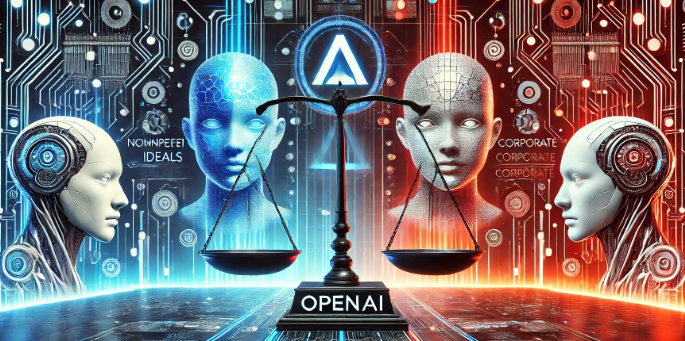In a rare alignment, Meta CEO Mark Zuckerberg and Tesla’s Elon Musk oppose OpenAI’s transition to a for-profit entity. The move underscores the potential impact on Silicon Valley’s landscape. Meta, the parent company of Facebook and Instagram, warned California’s Attorney General, Rob Bonta, about the “seismic implications” of OpenAI’s restructuring. The company expressed concerns in a letter, first reported by a major publication, that OpenAI’s shift could misuse charitable assets for substantial private gain.
- Meta and Musk Align Against OpenAI: Mark Zuckerberg and Elon Musk have voiced opposition to OpenAI’s shift to a for-profit structure, citing ethical and governance concerns.
- Legal and Ethical Disputes: Musk and former OpenAI board member Shivon Zilis have taken legal action to block the transition, arguing it prioritizes corporate interests over public benefit.
- OpenAI’s Defense: OpenAI claims Musk initially supported its for-profit model but distanced himself after losing control. CEO Sam Altman criticized Musk’s potential use of political influence to hinder competitors.
- Broader Industry Impact: This legal battle highlights tensions in Silicon Valley over AI governance, ethics, and the balance between innovation and public accountability.
Earlier this month, Musk and Shivon Zilis, a former OpenAI board member, requested a federal judge to prevent OpenAI’s transformation. They argued that OpenAI’s shift served corporate interests over public good. Musk, who co-founded OpenAI in 2015, has since distanced himself after disagreements with current CEO Sam Altman, and has started his own AI venture, xAI.
Despite their often-public disagreements, Meta and Musk’s shared goal is to halt OpenAI’s restructuring. The letter to Bonta emphasized that Musk and Zilis are well-equipped to represent Californians’ interests in this legal matter. OpenAI, led by a nonprofit board since its inception, plans to become a for-profit public benefit corporation. This would end its nonprofit board’s control.
OpenAI responded to the injunction by releasing communications suggesting Musk initially backed the for-profit idea, but left after losing a control bid. Altman countered Musk’s legal actions by expressing confidence that Musk’s political influence would not harm competitors unfairly. Altman criticized Musk’s potential use of political power to benefit his businesses, deeming such actions “profoundly un-American.”
The ongoing legal battle reflects broader tensions in the tech industry over governance and the ethical implications of AI development. Both Meta and Musk’s involvement highlights the high stakes involved in OpenAI’s structural decisions and the broader implications for Silicon Valley.

